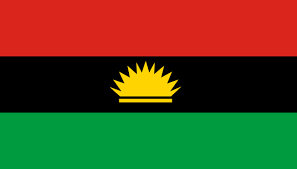Biafra: An insider’s account (I)
Since the Nigerian Civil War ended in January 1970, there has been a continuous stream of publications on the war; its background, its conduct and the aftermath. Army generals, politicians, academics and plain busybodies have regaled us over the years of the war. Besides one or two to my knowledge, none has achieved the level […]

biafra
Since the Nigerian Civil War ended in January 1970, there has been a continuous stream of publications on the war; its background, its conduct and the aftermath. Army generals, politicians, academics and plain busybodies have regaled us over the years of the war. Besides one or two to my knowledge, none has achieved the level of an inside account. Phillip Effiong’s Nigeria and Biafra: My Story and Alex Madiebo’s The Nigerian Revolution and the Biafran War fit the description of insiders’ accounts.
This is understandable because Phillip Effiong was deputy to rebel leader Odumegwu Ojukwu, and who, at the point of defeat, in January 1970, had the painful duty to surrender to Nigeria’s Head of State, General Yakubu Gowon, in Lagos. Alex Madiebo was the Chief of Staff of the rebel army and was at the heart of the military campaign. Many consider Effiong’s and Madiebo’s books as authentic inside accounts of happenings in the rebel’s enclave throughout the civil war.
Now, the memoirs of Ambassador Godwin A. Onyegbula, who died recently at the age of 94, can be said to complete the picture. Ambassador Onyegbula manned the two most sensitive posts around the rebel leader Odumegwu Ojukwu before and throughout the civil war. The memoir, The Nigerian-Biafran Bureaucrat, is an honest account of the happenings around the rebel leader throughout the insurrection. While both Effiong and Madiebo were soldiers and were wont to see things through a military prism, Onyegbula was a diplomat and a civil servant whose book gave a more holistic picture.
Ambassador Onyegbula was born in Nkwerre in the present Imo State and was raised in that environment. He was among the pioneering students of the University College, Ibadan, where he took an honours degree in history. At graduation in 1955, he joined the Eastern Nigeria Public Service Commission as one of the pioneer indigenous district officers. He served in Orlu, Okigwe, Port Harcourt and Ogoja and shortly after joined the Nigerian Foreign Service in 1959. He was among the elite group, including Leslie Harriman, Ciroman Kano Sanusi, Sule Kolo, David Dankaro and others that were in training in that period to man the Nigerian foreign missions abroad at independence in 1960. He had varied experiences in the Ministry of Foreign Affairs and the various Nigerian consulates he was posted at, before his encounter with Col. Ojukwu.
He had returned to Nigeria from a foreign posting in January 1966 in the heat of the first military coup and was staying with his family in Ikoyi Hotel when he received a message that the newly-appointed military governor of Eastern Region, Col. Odumegwu Ojukwu, wanted to see him. He met Ojukwu at midnight that fateful day at the Ikoyi residence of the father, Sir Odumegwu Ojukwu. Col. Ojukwu was brusque and to the point. He told Onyegbula: ‘I have proposed you as my secretary – – – I wanted someone like you, with no strong attachment or affiliation to the groups in the Eastern Region. Might I add that Phillip (Asiodu) was in fact my first choice – – – but he has just been appointed permanent secretary of an important federal ministry – – -’.
- NIGERIA DAILY: How To Know If Your Hajj Has Been Accepted
- Minister presents gold bars to president Tinubu, says sector will boost naira value
It was a challenging offer to either accept or refuse. He had made rapid progress in his career in the foreign service and had returned home hoping to be deputy permanent secretary in the ministry where his old friend Edwin Ogbu was presiding. He was looking forward to settling his family in an attractive house allotted to him in Ikoyi. His wife and many family members were against the move to the East. Somehow Onyegbula accepted Col. Ojukwu’s offer, because as he wrote: ‘I was fascinated by Col. Ojukwu. I could not say “no” to him.’ He had hoped it would be a short secondment of not more than a year or so and he could return to his familiar beat.
It was destined not to be. The Enugu Government House whose administration Onyegbula came to preside over became, in due course, a beehive of sorts. The actions of the murderous majors, Nzegwu and his co-conspirators, who in January 1966 unleashed a one-sided killing spree of political and military leaders from other parts of the country had become an albatross on the neck of the peaceful coexistence in the country. Ethnic clashes broke out in many parts of the country, particularly in the North which bore the brunt of the January murders. The counter-coup of July 1966 and the revenge killings that followed worsened matters.
The East was inundated with refugees. Onyegbula, as permanent secretary of the government house, was at the centre of coordinating government actions aimed at these crises. Soon the outcry for secession broke out and matters moved at a phenomenal rate. The Republic of Biafra was declared and preparations for war with the rest of Nigeria started in earnest. The book, The Nigerian-Biafran Bureaucrat, related all these and more, including the pace of the war, the intrigues, the successes and failures, the famine, and the utter devastation of the land.
Onyegbula survived the war and was openly unrepentant of his role during the rebellion. We shall return to the subject matter next week.
